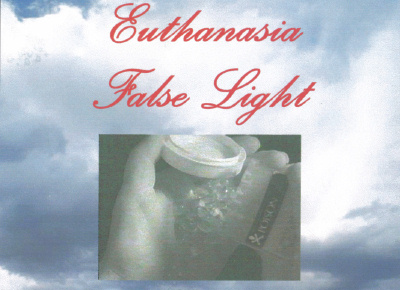Scroll down for articles
2021-2022
A bill titled the “End of Life Options Act” (S.F. 1352) to legalize assisted suicide has been introduced in Minnesota.
Text of bill
Another bill titled “End of Life Option Act” (H.F. 1358) to legalize assisted suicide has also been introduced.
Text of bill
(Both carried over from 2021 t o 2022)
“Medical-Aid-in-Dying Bill Reintroduced at MN Capitol”
(Public News Service — February 23, 2021)
According to one of the sponsors of the bill, it might be hard to get a hearing this session in the Republican controlled Senate. She added those who would make that decision have already expressed opposition, but she hopes the DFL-controlled House will at least debate the matter to keep the conversation going.
2019-2020
Minnesota held an informational hearing in a House committee on September 10, 2019. No vote was taken. The Chair of the Senate Health and Human Services Committee says the bill will not get a hearing in the Senate.
The bill (HF 2152), called the “End-of-Life Options Act,” if passed, would be far more expansive than any other law permitting assisted suicide.
Text of HF 2152
Analysis of HF 2152
Text of SF 2286 which is the companion bill to HF 2152
The bills were introduced in 2019 and have been carried over to 2020.
2017-2018
Two doctor-prescribed suicide bills, both called the “End-of-Life Option Act of 2017,” were introduced in 2017 and carried over to 2018. Neither bill passed.
Text of SF 1572
Analysis of SF 1572
Text of HF 1885
HF 1885 is virtually identical to SF 1572
2015
A doctor-prescribed suicide bill, the “Minnesota Compassionate Care Act,” was introduced. The bill was withdrawn by its sponsor in March 2016.
Text of SF 1880
Analysis of SF 1880
Current law regarding assisted suicide
Whoever intentionally advises, encourages, or assists another in taking the other’s own life may be sentenced to imprisonment for not more than 15 years or to payment of a fine of not more than $30,000 or both,
and
Whoever intentionally advises, encourages, or assists another who attempts but fails to take the other’s own life may be sentenced to imprisonment for not more than seven years or to payment of a fine of not more than $14,000 or both.
(Minn. Stat. § 609.215)
Note: In March 2014, the MN Supreme Court severed and excised the portions of MN Stat. § 609.215 that pertained to advising or encouraging, but left intact the “assisting” portions of the statute.
Court cases
“SCOTUS Declines To Hear Minnesota Assisted Suicide Case”
(Minnesota CBS Local — October 2, 2017)
The U.S. Supreme Court has declined to hear the case of a national group convicted of assisting in the 2007 suicide of a Minnesota woman.
Florida-based Final Exit Network argued that Minnesota’s law making it a crime to help other people kill themselves violates the freedom of speech.
But Minnesota’s appellate courts disagreed, saying the state’s assisted-suicide law is constitutional and that “assisting” suicide can include speech instructing another person in methods.
Parts of a state law that make it illegal to encourage or advise suicide are unconstitutional, and the conviction of a former Faribault nurse who urged two people to kill themselves is reversed, the Minnesota Supreme Court ruled Wednesday. The high court sent the case against William Francis Melchert-Dinkel back to district court. (March 19, 2014)
Minnesota Supreme Court Decision (March 19, 2014)
Decision in Minnesota v. William Francis Melchert-Dinkel (July 17, 2012)
(See below for news article about the case)
Articles
“Too many patients are still suffering and dying alone”
(Minneapolis Star Tribune — September 16, 2020)
Families are essential to our patients’ lives, and they should be treated as essential. Before COVID-19, families were often encouraged by the medical team to show up. Now, we are forcing families to stay away in patients’ time of need and their last moments….
As hospital workers look ahead toward a future with COVID-19, we must balance our new normal with empathy, and a trauma informed approach. In our efforts to keep our patients physically safe, we must not ignore the emotional harm we are imposing upon them.
More on Loneliness
“Isolated during the pandemic, seniors are dying of loneliness and their families are demanding help”
(Twin Cities Pioneer Press — June 19, 2020)
“Minnesota’s efforts to protect its most vulnerable residents during the coronavirus pandemic, is also having a unintended consequence — the isolation is killing some of them…
“Three Minnesotans, all in their 90s, who died in early June had ‘social isolation’ listed as a cause of death or contributing factor on their death certificates.”
More on Minnesota
More on Coronavirus
“Minnesota is being asked to become a suicide tourism destination”
(Star Tribune — September 10, 2019)
A bill before the Minnesota Legislature, if enacted into law, would attract people from all over the country to travel to Minnesota to receive lethal suicide drugs.
“SCOTUS Declines To Hear Minnesota Assisted Suicide Case”
(Minnesota CBS Local — October 2, 2017)
The U.S. Supreme Court has declined to hear the case of a national group convicted of assisting in the 2007 suicide of a Minnesota woman.
Florida-based Final Exit Network argued that Minnesota’s law making it a crime to help other people kill themselves violates the freedom of speech.
But Minnesota’s appellate courts disagreed, saying the state’s assisted-suicide law is constitutional and that “assisting” suicide can include speech instructing another person in methods.
“Editorial: Death and the state”
(Pioneer Press — March 23, 2016)
Although a “Compassionate Care” bill was withdrawn from consideration after a hearing in the Minnesota Legislature last week, the issue will remain before Minnesotans.
With one side emphasizing “compassion” and the other “assisted suicide,” it’s a conversation in which language matters.
More on Verbal Engineering
“Minnesota’s assisted-suicide bill withdrawn after impassioned testimony”
(Pioneer Press — March 16, 2016)
State Sen. Chris Eaton, DFL-Brooklyn Center, withdrew the bill afterward, rather than allowing a vote. The move means that Minnesota is unlikely to consider joining several other states permitting patients to take lethal prescriptions until at least 2017.
“Not Dead Yet Testimony Opposing Minnesota Assisted Suicide Bill”
(March 16, 2016)
As usual proponents hinge their arguments on the claim that the Oregon experience proves that the law is safe. They never mention the deficiently minimal reporting and non-existent investigation or oversight under the Oregon law. They definitely never mention the cases of abuse that have come to light through mainstream press and professional journals….Assisted suicide laws grant blanket immunity and effectively foreclose investigation of wrongdoing.
More on Disability Perspective
“Assisted suicide: An idea that loses appeal as it becomes tangible”
(Star Tribune — March 15, 2016)
SF 1880 is sponsored by a group of DFL legislators, led by Sen. Chris Eaton of Brooklyn Center, who claims that assisted suicide enjoys ‘overwhelming support” from the American public.
This is overconfidence. The truth about assisted suicide is that it 1) takes time to understand and that it 2) turns political stereotypes on their head…
But then something remarkable happened. The people of Massachusetts began to understand the issue.
“Final Exit Network found guilty of assisting suicide in Dakota County”
(Star Tribune — May 13, 2015)
It’s the first time Final Exit Network, a national right-to-die group, has been convicted of the criminal charge of assisting suicide.
“Faribault nurse’s suicide-assist conviction reversed”
(Twin Cities — March 19, 2014)
Parts of a state law that make it illegal to encourage or advise suicide are unconstitutional, and the conviction of a former Faribault nurse who urged two people to kill themselves is reversed, the Minnesota Supreme Court ruled Wednesday. The high court sent the case against William Francis Melchert-Dinkel back to district court.
“Minnesota Supreme Court agrees to hear assisted suicide case”
(Star Tribune — December 26, 2013)
The fight over which charges — if any — can be pressed against Final Exit Network and two of its members in connection with the 2007 suicide of an Apple Valley woman is headed to the Minnesota Supreme Court.
“Ex-Nurse Wants Aiding-Suicide Conviction Reversed”
(CBS News — December 19, 2012)
An attorney for a former nurse convicted of going online and encouraging two people to kill themselves says his client was merely supporting his alleged victims and had no influence on their actions.
William Melchert-Dinkel was convicted last year on two counts of aiding suicide. His attorney is asking the Minnesota Supreme Court to overturn those convictions.
“Minnesota: Final Exit Network Argues Assisted Suicide Law Violates Free Speech Rights in Court”
Members of a national right-to-die group are challenging Minnesota’s assisted-suicide law, saying it violates constitutional rights to freedom of speech and freedom of association….Final Exit members claim they do not encourage suicide, but that the act of giving information and emotional support could be interpreted as “encouraging” under Minnesota law that makes it a felony for someone to intentionally assist, advise or encourage suicide.
(Not Dead Yet — December 19, 2012)
“Guardians can’t end life support, judge rules”
(Star Tribune — October 18, 2012)
Guardians can’t order their wards removed from life support, according to a Thursday court ruling. “Simply stated, if the Legislature intended to give a guardian the power to end the ward’s life, it would have explicitly done so,” according to Hennepin County District Judge Jay Quam.
“Ex-nurse’s conviction for aiding suicides upheld”
(Star Tribune — July 17, 2012)
The First Amendment does not protect the “morbid, predatory behavior” of a former nurse convicted of using the Internet to urge two people to kill themselves, the Minnesota Court ruled Tuesday.
The court unanimously upheld William Melchert-Dinkel’s conviction for assisting suicide, a felony under Minnesota law.




